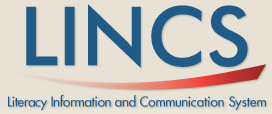MAKING SENSE OF DECODING AND SPELLING
Reviewed 11/22/2015

Access to this book courtesy of
MAKING SENSE OF DECODING AND SPELLING
Teachers' and Administrators' Guide
Charles A. MacArthur
Judith A. Alamprese
Deborah Knight
Washington, DC: National Institute for Literacy, August 2010 |
High
|
| ISBN-13 978-0-? |
| ISBN-10 0-? |
200+pp. |
Binder |
$0.00 |
I used this document in 2015 while tutoring for Partners in Reading, a program of the San Jose, CA public library. I found a great number of mistakes, which I detail below.
Errata
| Page 17-7: |
"6. dry + ly = dryly." |
| |
I believe this is archaic usage. My dictionaries show the only accepted spelling is "drily". |
| Page 18-8: |
Suffixes table: "ment / ate / able / ness / ing / s / ed" |
| |
Missing suffix: Add "tion". |
| Page 19-7: |
"Sickeness" |
| |
Spelling: S/B "Sickness". |
| Page 21-6: |
"Dictate the following words:" |
| |
The list has 8 words; the answer key (page 21-7) has 9. The missing word is "coast". |
| Page 22-2: |
"Pan fried Brook Trout with Sour Lemon" |
| |
In the student workbook, "Brook" is underlined, and "Trout" is italicized. |
| Page 22-5: |
"The first word is toy. Which column would you write toy in?" |
| |
The table for Activity C does not contain "toy." |
| Page 23-4: |
"The first word with an e-a digraph is great." |
| |
No, the first word in the Document of the Day with an e-a digraph is "Dear." |
| Page 23-5: |
Syllablification table of Activity B: "4. dis/pleas/ed 6. threat/en/ed" |
| |
Neither of these words has three syllables. |
| Page 23-6: |
"I had a great dream last night. I dream that I found a hidden treasure in a grassy meadow." |
| |
The story is told in past tense, so this word should be "dreamed." |
| Page 25-2: |
"Insurance Carrier: Good Hands
Employer: Parents for Humanitarian Progress" |
| |
These two lines from the "Accident Report Form" are not in the student's workbook, but only in the Teacher's Guide. It wouldn't be a problem except that the guide for this lesson asks about "carrier." This page is supposed to extend the form shown on 24-3, but instead reproduces it exactly. |
| Page 26-4: |
"Complete the word with either er, ir, or ur, ar, or ear." |
| |
The instance of "or" is italicized. It should not be, since it isn't one of the choices. Also, the choices could be presented more clearly, as in an enumerated list: Choose one of "er", "ir", "ur", "ar", "ear". |
| Page 26-4: |
For "3. learn", the student workbook has "l___rn." |
| |
This confuses some students, because it suggests that "learrn" is a possible choice. It should be "l___n." |
| Page 26-6: |
"I run outside and I saw the first snowflake falling gently from the sky." |
| |
This mixes present and past tenses. It should be: "ran outside and I saw". |
| Page 27-3: |
Inside the box: "Document of the Day" |
| |
The relevance is unclear, since the words in this table are not in the Document of the Day on page 27-2. |
| Page 28-7: |
"For many generations, my family lived in Germany. When I was six, we immigrated to the United States." |
| |
I think this word should be "emigrated," since it describes leaving Germany for a new country of residence. |
| Page 29-4: |
"After you divide the word, read it to make sure you have a real word." |
| |
Why "to make sure you have a real word"? The words provided are real. |
| Page 29-4: |
"Im / poss / ible." |
| |
"Impossible" has four syllables, not three. |
| Page 29-4: |
"[in] / ter / act / [ive]." |
| |
I would say the prefix is "[inter]". |
| Page 29-5: |
"Finally, write it the whole word together." |
| |
Extra word: S/B "write". |


To contact Chris Winter,
send email to this address.
Copyright © 2015 Christopher P. Winter. All rights reserved.
This page was last modified on 14 November 2015.



 To contact Chris Winter, send email to this address.
To contact Chris Winter, send email to this address.